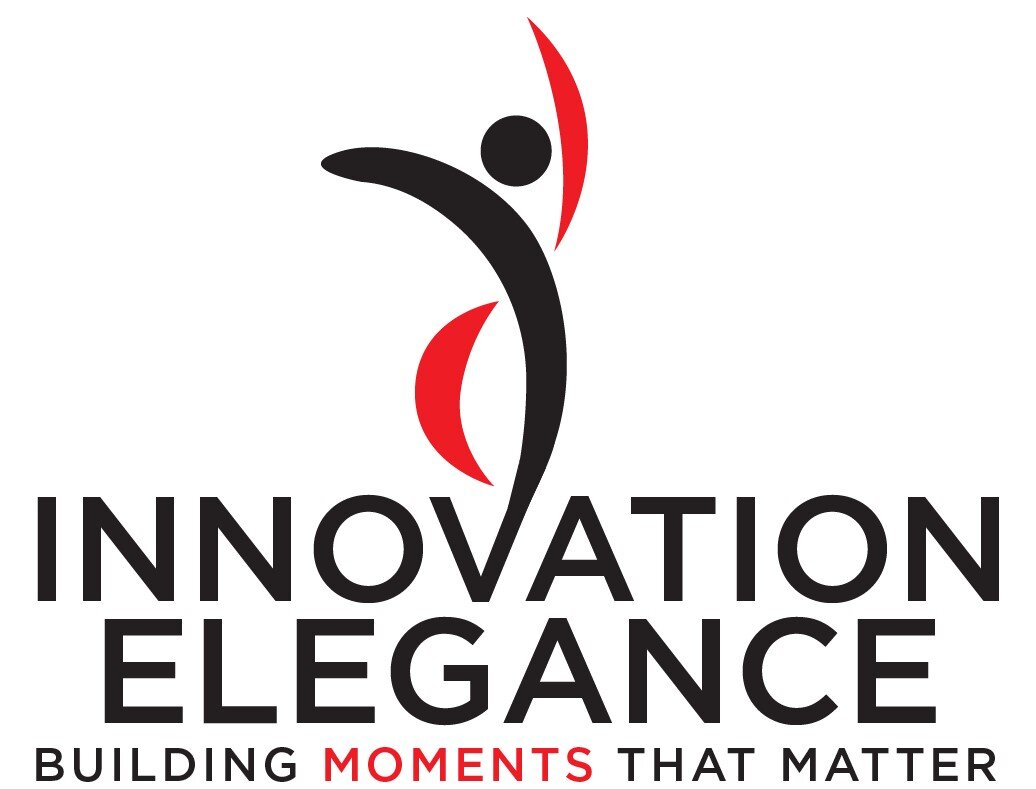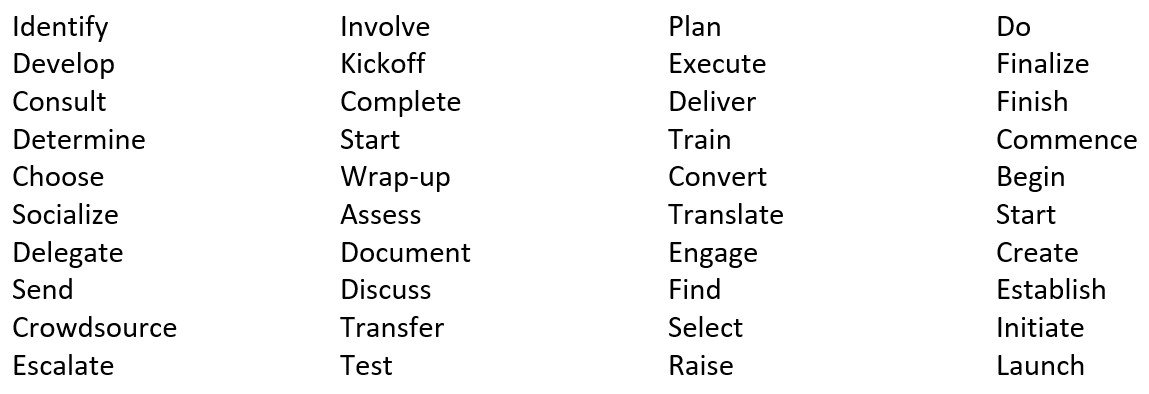Verb Sprawl
There is a time and place for exotic word choice. Your project plan is not one of these places. When you commit Verb Sprawl, you dilute focus and accountability of your team’s work.
Earlier in my career, one of my employers purchased a Content Management System from an outside company. Along with this SaaS, we hired their consultants to install it. Their project manager shared with me their standard project plan. The plan was difficult to follow. It was difficult to know if the plan would make us successful. One peculiarity I noticed was the high variability of word choice, specifically, verbs. A project plan of just over 100 items contained over 30 different verbs. It felt extremely busy and complicated.
As I scanned the verbs in the project plan, some reactions and questions came to mind …
Formality – I can’t tell where the plan calls for documentation versus a conversation
Is this plan a public to-do list?
Ambiguity – some terms might mean different things to different people with assignments
Reinventing the wheel – is this project so different from others that it barely contains anything in common with most innovation work?
I remember a few things about that project. Over time, the size of the project plan exploded in size. The project did complete and seemed successful at first. However, that company was soon bought, and a year later, we replaced the software with the software of the acquiring company. None of the original software survived. What survived was the lesson of Verb Sprawl.
When I encountered another episode of Verb Sprawl in another project a year later, I formalized the verbs I felt everyone needed to see, and I formalized what Verb Sprawl looks like. This.
Verb Sprawl is one trait that makes a project plan look intimidating. Verb Sprawl contributes to stakeholder disengagement. The simplicity and elegance of the Five Verbs keep stakeholders engaged in planning and execution. The Five Verbs reduce negative surprises. Verb Sprawl is a symptom that the team maintains counterproductive documentation. Verb Sprawl undermines individual status reports, thus undermining individual accountability in the project. Verb Sprawl reinvents the wheel, which undermines an Agreement Factory and hurts your team’s speed. It creates gaps in the work, hurting your team’s quality. Verb Sprawl is noise. It hurts the employee experience. Verb Sprawl is not ruthless. It’s not graceful. It is painful and messy.
When you want creativity and variability in innovation work, direct them at the assets that generate an improved customer experience – Moments That Matter. In building your project plan, build a smooth cadence and avoid reinventing the wheel. Avoid Verb Sprawl.




